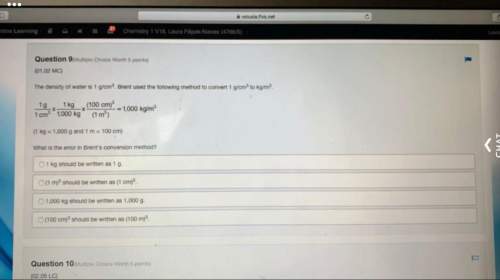
Chemistry, 24.02.2020 05:15 kataldaine
The total number of electrons in a neutral atom of every element is always equal to the atom's
1. mass number
2.
number of neutrons
3.
number of protons
4.
number of nucleons

Answers: 1


Another question on Chemistry



Chemistry, 22.06.2019 23:20
In medium-sized stars such as the sun, nuclear fusion almost always means the fusing of nuclei to form , but larger stars can produce elements as heavy as
Answers: 2

Chemistry, 23.06.2019 00:00
2-bromo-2-methylbutane undergoes an e1 elimination reaction in the presence of ethanol. in the next reaction only one of the possible products is represented. although the product shown is not the major product of the reaction, notice that there is more than one way it can be produced. complete the mechanism and draw the missing substances.
Answers: 1
You know the right answer?
The total number of electrons in a neutral atom of every element is always equal to the atom's
...
...
Questions


Mathematics, 28.03.2021 23:40


Computers and Technology, 28.03.2021 23:40


Mathematics, 28.03.2021 23:40

Mathematics, 28.03.2021 23:40

English, 28.03.2021 23:40

History, 28.03.2021 23:40

Chemistry, 28.03.2021 23:40


Mathematics, 28.03.2021 23:50

Mathematics, 28.03.2021 23:50

Mathematics, 28.03.2021 23:50

Mathematics, 28.03.2021 23:50



Mathematics, 28.03.2021 23:50

Mathematics, 28.03.2021 23:50




